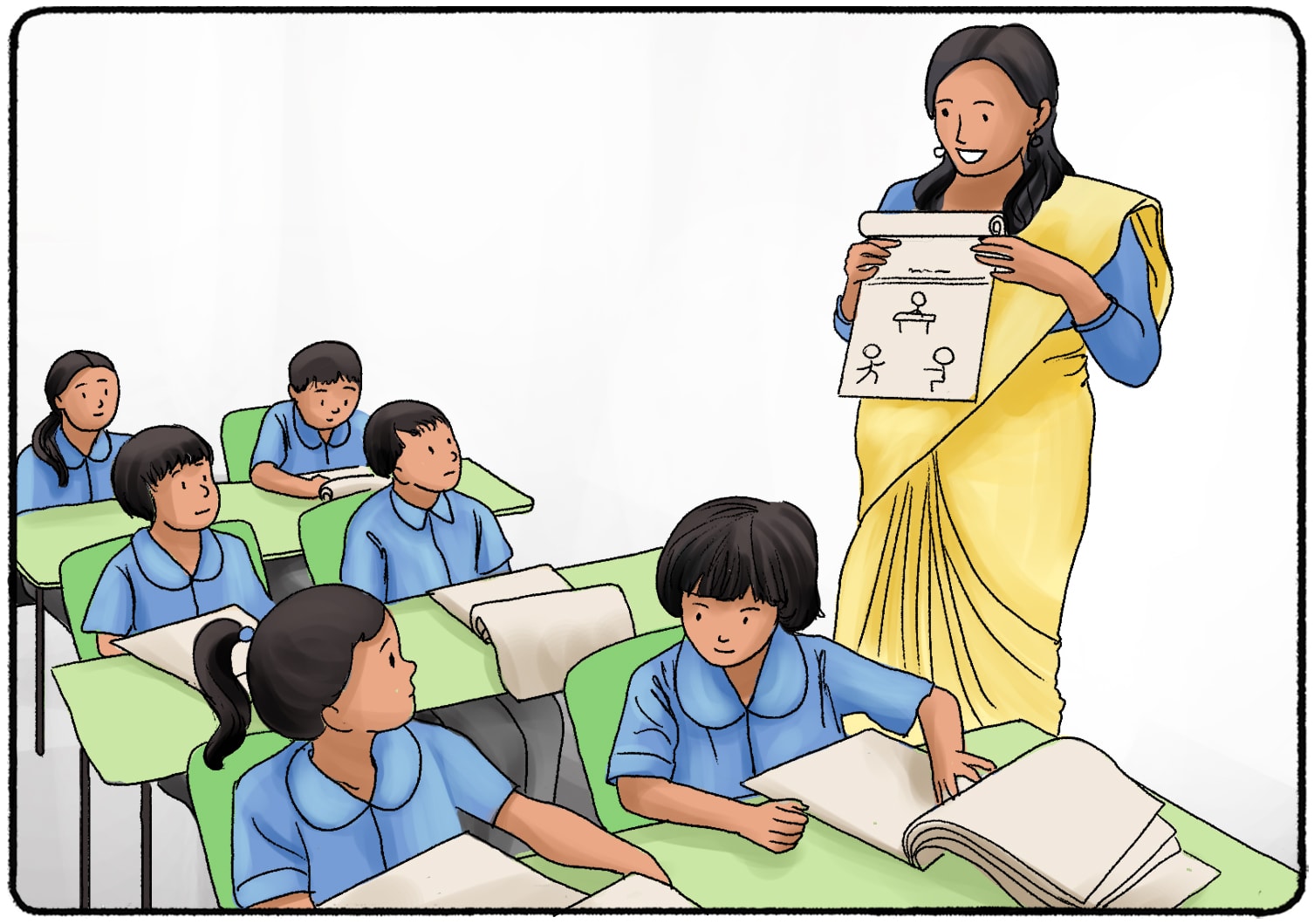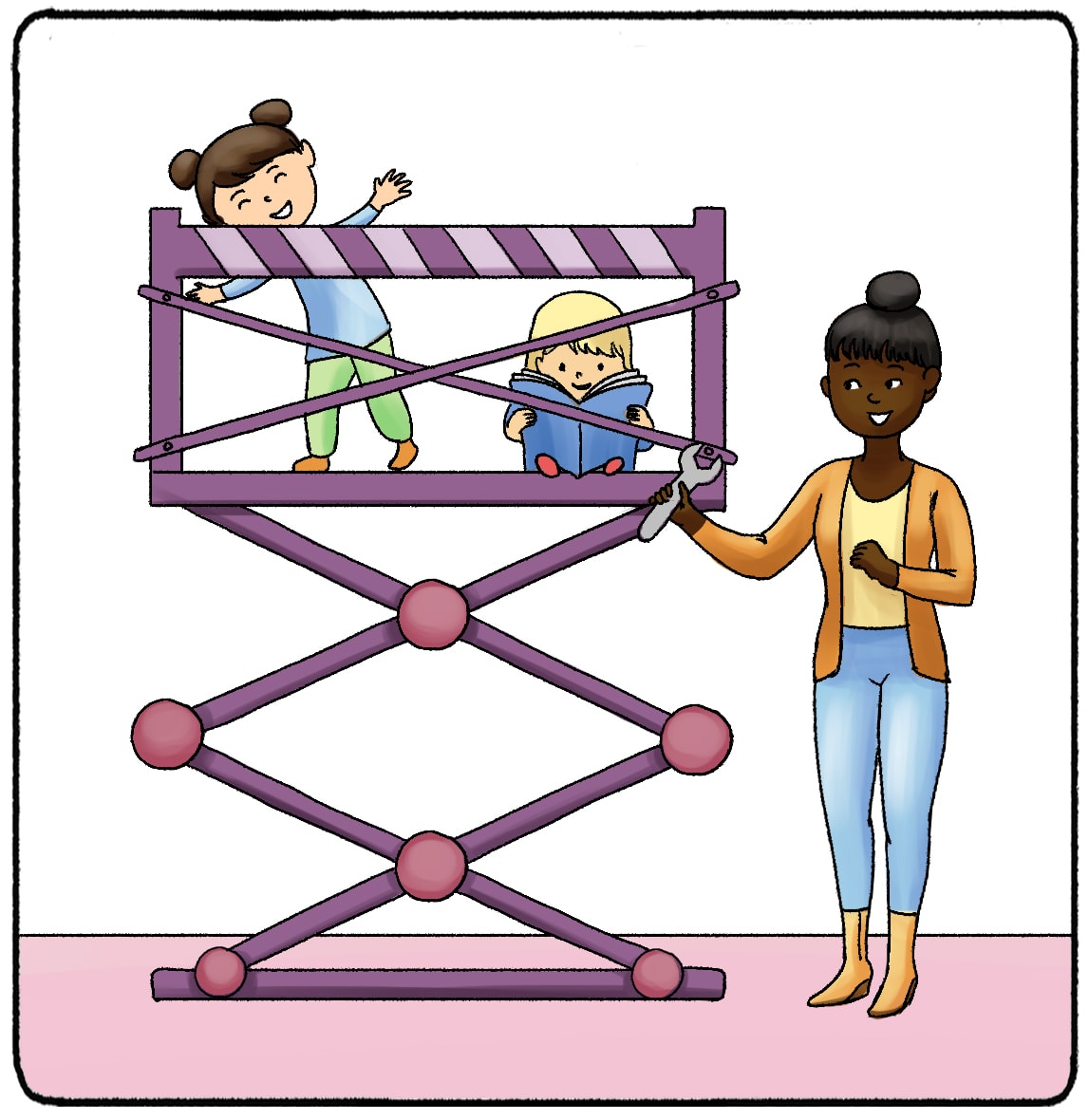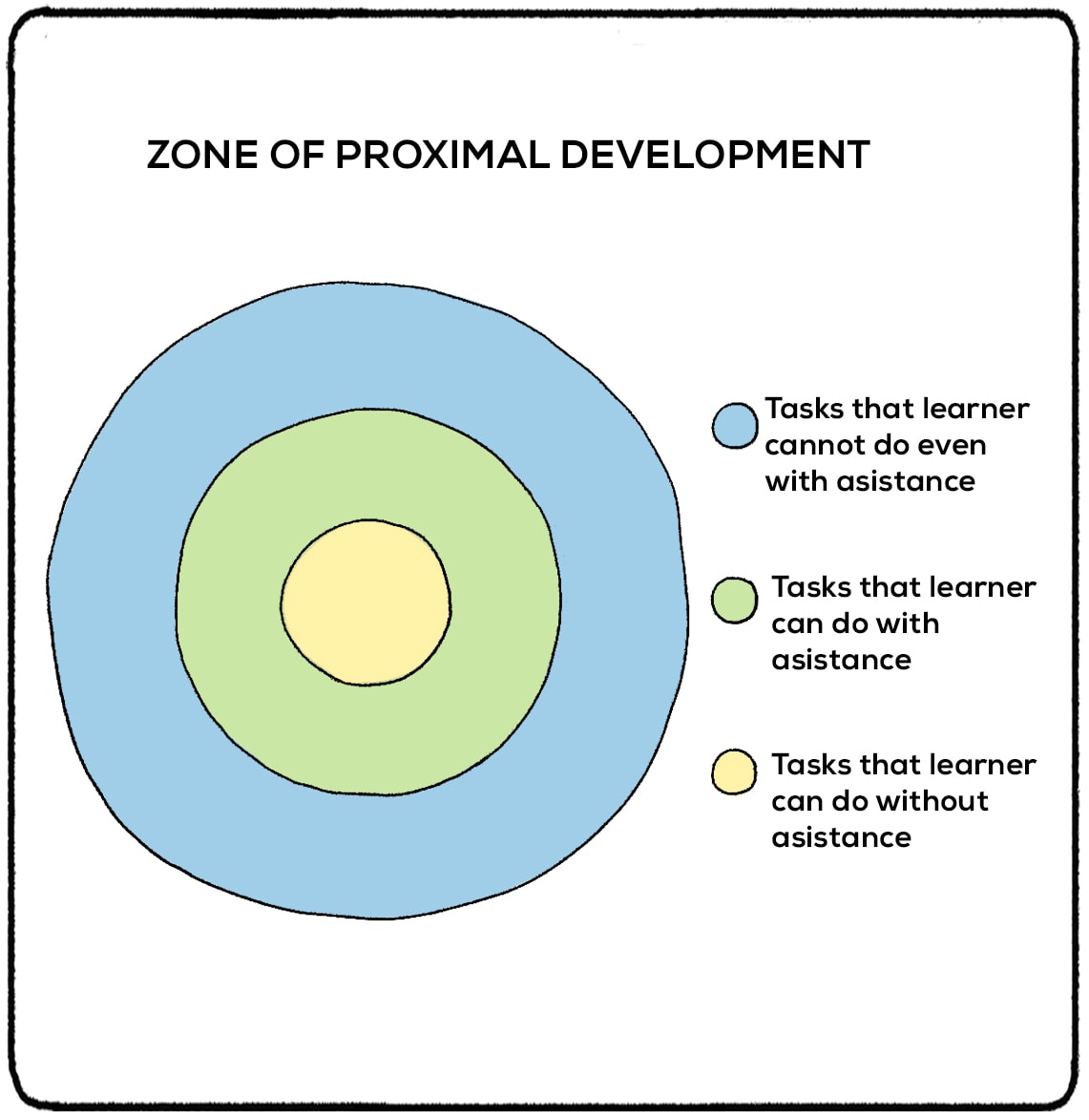Did you know that Vincent Van Gogh only sold one painting before he died? Franz Kafka and Jeff Buckley were not household names when they died, either. Many authors, musicians, and even psychologists died without seeing the lasting impact of their work.
One such psychologist is Lev Vygotsky. Vygotsky was a psychologist who died in Soviet Russia during the early 1930s. While he was alive, he wasn’t regarded as highly influential. But his work is now highly regarded in the world of education and child development. Teachers today may be learning concepts that were introduced or influenced by Vygotsky, like Sociocultural Theory, many decades ago.
Even though Vygotsky has gained a lot of recognition in recent years, it’s too early to say whose theory will prevail. Vygotsky did not record many studies of his work, and much is left to be desired in terms of “proving” Sociocultural Theory. But one thing that we do know is that Sociocultural Theory and Vygoskian principles have made a serious impact on the way that we parent, teach, and allow children to socialize.

What Is Sociocultural Theory?
Sociocultural theory looks at the ways that society impacts development and behavior. Lev Vygotsky theorized that teachers, parents, and peers make an impact on an individual’s learning, but so do culture and beliefs. Social interaction, then, is key to learning and proper development.
Sociocultural theory is not just one idea - it's an umbrella theory that contains many concepts. The Zone of Proximal Development, for example, is an idea within the larger ideas of Vygotsky's sociocultural theory. Due to the psychologist's early death and late recognition, today's psychologists have to work with what they have, which is limited.
When was Vygotsky's Sociocultural Theory Developed?
Vygotsky's most impactful work was developed in the late 1920s. Vygotsky wrote essays and shared his theories briefly before his death in 1934. A lot of his work was published posthumously, with some work not becoming public until the 1980s. This work continues to be cited and influences work in education and developmental psychology.
Why Is Sociocultural Theory Important?
Vygotsky’s theory may seem like common sense. At the time, however, it was a response to very different ideas about behavior and learning. Even very complex behaviors and decisions could be broken down to stimuli and responses, said the behaviorists of the time.
In the 1930s, behaviorism was all the rage. The behavioral school of psychology opened in 1913 and the Little Albert experiment shook the world just a few years later. Behaviorists believed that all behavior could be broken down into a stimulus and a response. Through conditioning and other methods, the behavior could be controlled. The internal processes that fueled those actions were not as important.
Vygotsky, on the other hand, was primarily concerned with the internal. He is known for studying the ways in which we internalize knowledge. Language development, thought, and education were the subjects of his most well-known works. His work didn’t gain him much international recognition at the time. But now that cognitive science has usurped behaviorism’s throne, these works are getting a second look and a more respected opinion.
Examples of Sociocultural Theory in Everyday Life
We see the ideas of Vygotsky in our homes and classrooms every day!
Examples of Sociocultural Theory in Parenting
As a student, you have engaged with this theory without really knowing it. Your parents certainly used ideas from this theory when deciding when and where you should go to school. Have you ever heard someone choose a public school over homeschooling because they want the student to interact with other children? Or maybe a parent decided not to let their child skip a grade because they didn’t want the child with older and more intimidating children.
Social interactions are a crucial part of going to school. Parents who believe that social interactions are crucial to learning are going to use that belief to make decisions about their child’s education.

Examples of Sociocultural Theory in Education
Sociocultural theory may also influence the way that a teacher sets up their classroom and lesson plans. A teacher may encourage classrooms to split off into groups and work on a problem within themselves. They may assign students who have grasped certain concepts to tutor students who are struggling.
Sociocultural theory is applied when teachers pull from their own beliefs or experiences with education. Many teachers also incorporate scaffolding into their lesson plans. This idea was not coined by Vygotsky, but it is closely associated with his work on Sociocultural Development and more specific theories, like ZPD.
Zone of Proximal Development

Vygotsky is well-known for a theory within Sociocultural Theory: the Zone of Proximal Development (ZPD.) He laid out knowledge and skills on a spectrum. There are skills that a person can easily do without any help - these are on one side of the spectrum. On the other side are skills that a person cannot do on their own. But that doesn’t mean that they can’t learn these skills later on.
In between the two sides is the ZPD. These are skills that a person can complete with the guidance of a More Knowledgeable Other (MKO.) The MKO could be a teacher, parent, or just a student who has more skills in the subject. With their help, the student will be able to do the tasks without assistance, enhancing the innermost circle. Tasks on the outermost circle may even make their way into the middle circle.
What does this have to do with sociocultural theory? At the time, psychologists were focused on an individual's skills. They measured an individual's capacity. Sociocultural theory recognizes that not all skills are built alone. By having another person to walk you through a task, you can learn to do the task by yourself faster. This acknowledgment of collaboration is crucial to the larger sociocultural theory.
Is Sociocultural Theory Nature or Nurture?
As psychology has changed and evolved, so has the debate on "nature vs. nurture." Sociocultural theory and Vygotsky's work lean toward nurture. An MKO is the result of one's environment; without specific people intentionally placed in the environment, scaffolding wouldn't be possible.
How Does This Fit In With the Rest of Developmental and Social Psychology?
It would be very unlike Vygotsky to ignore the peers who influenced his work. You already know how sociocultural theory responded to behaviorism and other schools of thought. Vygotsky was not the only psychologist to push back on behaviorism. Cognitive psychology was just finding its footing in the early 20th century. The work of psychologists like Piaget and Kurt Lewin influenced Vygotsky's work in different ways.
Piaget vs. Vygotsky
In the 1930s, outside of Soviet Russia, Jean Piaget created his own theory about development based on his observation of children. Piaget’s Stages of Cognitive Development has become one of the most well-known theories in developmental psychology. It lays out different stages and ages in which children develop certain skills, including object permanence and the ability to think in hypotheticals.
Piaget’s theory is more complete and backed by research than Vygotsky’s due to Vygtosky’s early death. But the two psychologists are often compared. It is believed that reading Piaget's work strongly influenced Vygotsky. The two weren't rivals, though. Piaget did not access Vygotsky's work until after his death in 1934.
Here are some of the most notable differences between Sociocultural Theory and the Stages of Cognitive Development:
- According to Vygotsky, social interactions are more important (aka crucial) to a child's cognitive development. Piaget did stress the importance of play and interactions with others but focused more on a child exploring their own world.
- Piaget’s theory is universal and applies to any child’s development, no matter where they are. Vygotsky heavily stresses the impact of the culture and society a child grows up in. While the stages of cognitive development sit on a more naturist side of the debate, Vygotsky’s theory is more empirical.
- While Vygotsky highly encouraged guided learning from teachers and MKOs, Piaget believed that individual exploration was the key to cognitive development.
Gestalt and Vygotsky
Vygotsky was heavily inspired by Kurt Lewin's Field Theory and the Gestalt psychologists. Like Vygotsky, Gestalt Theory aimed to shake up psychology. Ideas like structuralism and even Jean Piaget tried to organize thoughts into neat piles. Psychologists could look at each thought or idea individually. Gestalt psychologists thought differently. They looked at the "whole" rather than the sum of its parts. Vygotsky aimed to do the same. He zoomed out.
Today, we associate Gestalt Theory with design principles. But if you "zoom out" and look at psychology through a Gestalt lens, you can see how it impacted Vygotsky!
How To Look At Riding a Bike Like Vygotsky (Example)
How does a child learn how to ride a bike? What will help them if they’re struggling to build this skill? Developmental psychologists all take a different approach to answering this question. See how Vygotsky answers versus a psychologist like Albert Bandura. This simple guide may help you distinguish the theories of notable psychologists.
BF Skinner:
Rewards and punishments are crucial to the child learning how to ride a bike. They will be motivated to try riding if they know they will receive a reward for doing so. When the child hops on the bike, the parent should offer verbal encouragement or even the promise of candy or time on the iPad. Even if the child falls, they know a reward is coming. Through all this practice, the child will learn to ride a bike.
Carol Dweck:
What matters is that the child believes they can learn to ride a bike. If they have a growth mindset, they will likely learn to ride a bike faster. Falling off the bike will not deter them. The child knows it’s all part of the process.
Albert Bandura:
By observing another person riding a bike, the child can get comfortable with trying to ride a bike. If they see the person fall off the bike and get up again, the child will learn to accept that as part of the process, too.
Lev Vygotsky:
In the earliest years of a child’s life, riding a bike is considered a task that cannot be done, even without assistance. As they learn to complete easier tasks (walking, running, balancing on one foot, etc.) riding a bike becomes more and more of a possibility. At one point, it will be a task that a child can complete with assistance. A parent or older sibling is likely to serve as the More Knowledgeable Other. They help the child ride a bike until it is a task that can be done without assistance.
Cultural factors, as well as the beliefs of the parent and child, also influence how the child learns to ride a bike. A parent in a certain society may believe their child should learn by doing - fast. They take off the training wheels early and send the child down a hill. Other parents believe the child should be observed through every step of the process so as to not get hurt. Another set of parents may wait for the child to lead the training. They will wait for the child to ask to take the training wheels off.
The way in which a child learns how to ride a bike is highly influenced by the people around them and their social and cultural beliefs.
Interesting, right? All of these psychologists come to different conclusions about learning and building skills. Although Vygotsky’s sociocultural theory was not a well-known theory until recently, it remains very influential in the world of developmental psychology.
